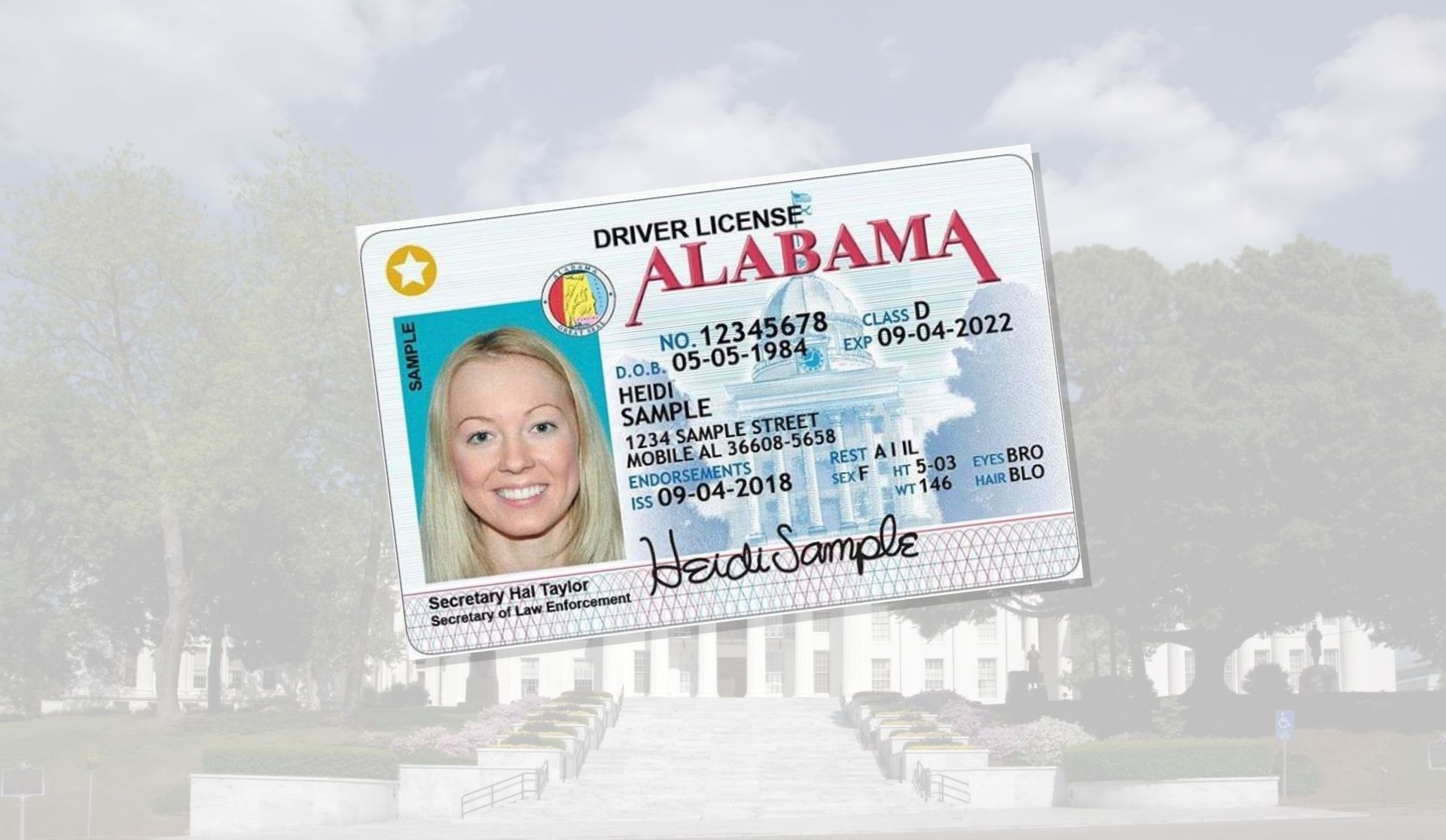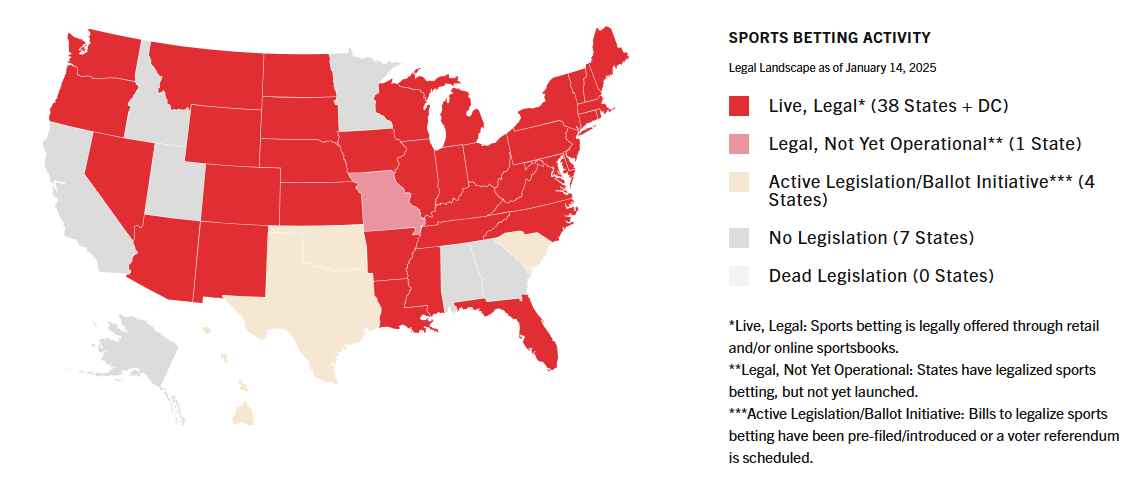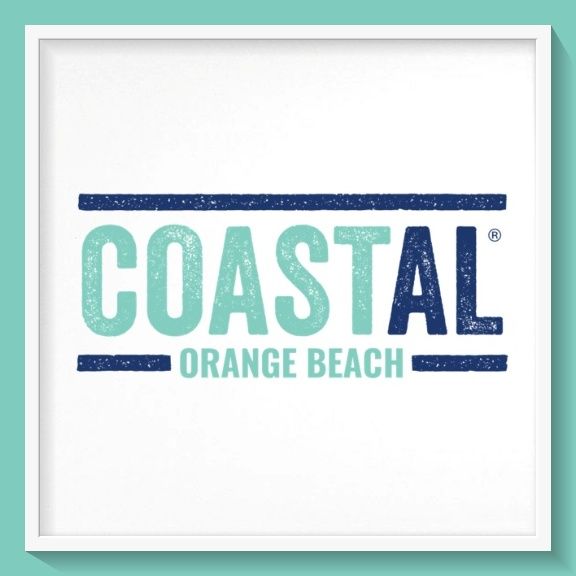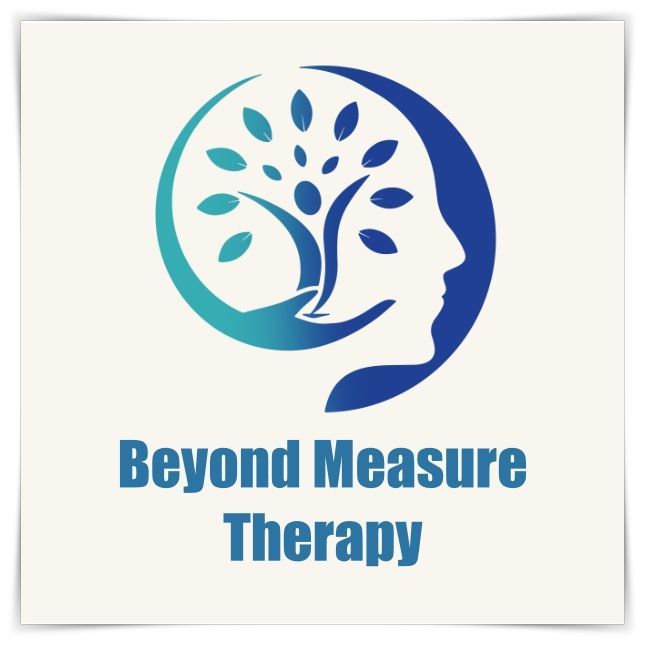Online Sports Gaming Is Illegal In Alabama But Is Happening Everywhere
News Staff • January 26, 2025
Alabama is one of the few States which blocks online gaming

Remember the days when someone would bet the outcome of a sporting event with a friend or maybe a local bookie? Those days have long passed and online sports betting has rapidly grown across the United States. There are now over 30 sportsbook style online gaming apps operating legally in the US, and many areas are enjoying the taxable income.
For decades you could only legally place sports bets in Nevada but in 2018 the Supreme Court struck down the Amateur Sports Protection Act. Since then, 38 states as well as the District of Columbia and Puerto Rico have legalized some form of sports betting though not all have implemented it.
In todays market it is easy to find local users on their smart phones making bets on a games outcome or even the score of a golfer's game. If you ask them how they are able to do so in Alabama, where sports gambling is illegal, they casually respond that their account is registered in a different area.
Most of the States that have legalized online gambling apps did so to control the taxation. The Sates do not have to share proceeds with outside influencers. The app providers share the audited results and the percentage of funds each month. No need for gawdy casino buildings or expensive hotels.
Sports betting's growth is not only in the United States. The sports betting industry has also exploded globally, with distinct regional markets driving growth. Each region offers unique dynamics shaped by local regulations, cultural preferences, and technological advancements. North America stands out as a rapidly expanding market, with the United States leading in revenue and market innovation, Canada showing strong growth potential, and Mexico steadily rising.
In the U.S., regulations on sports betting marketing and advertising are determined at the state level, creating a patchwork of requirements for operators.
The American Gaming Association is not a regulatory body, but its Responsible Marketing Code for Sports Wagering has become a recognized framework for promoting ethical and responsible advertising practices. While the AGA’s code is voluntary, it is influential across the industry, particularly among operators aiming to demonstrate commitment to responsible marketing.
AGA Code Principles
- Legal Age Audiences: Ads target 21+ and do not appeal to minors. Digital placements must be 21+, and all promotional materials are age-restricted.
- College Advertising: Ads are prohibited on campus or in student media; partnerships are only for responsible gambling education.
- Responsible Messaging: All ads include a responsible gambling message, no “risk-free” claims, and do not encourage excessive betting or financial risk.
- Digital Compliance: Platforms must have age, geolocation verification, and responsible gambling messages.
The State of Alabama has consistently fought gambling legislation approval. The residents of the Alabama coastal region do not want to allow casinos along the beaches. Now the fastest growing form of gambling maybe helping both sides with the help of online apps.
Recent Posts


























